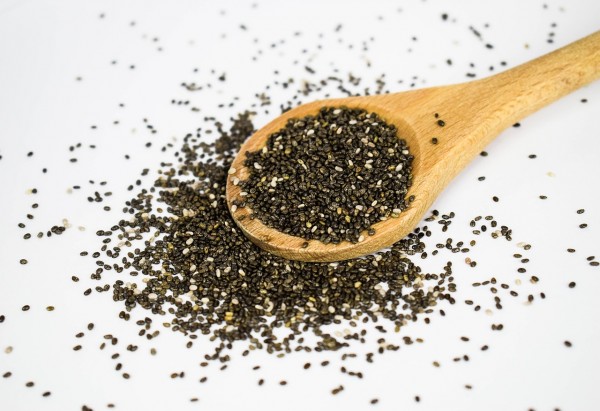Feeling Bloated? You Might Need More Vitamin D and Fiber

Foods as great sources of fiber include whole grains like brown rice or whole-wheat bread; nuts and seeds such as cashews, sunflower seeds and chia seeds, among others; fruits such as apples and avocadoes, to name two; and leafy greens like kale, for one.
Does your stomach ever make embarassing loud noises? Or maybe do you sometimes feel so full that you cannot move around freely and easily? Whether it's that bloated feeling or the other way, you surely feel irritated, right?
While there are several causes of gastrointestinal symptoms that cause discomfort, it's undeniable that your diet plays a vital role in your gut health.
Michigan Medicine gastroenterologist and internist, Shanti Eswaran, M.D., said that in general, "Diet is probably the main driver" of many GI symptoms.
This means that normally, what you eat moves through your body and goes through a transformation as it gets broken down by enzymes and bacteria in the GI tract, explained Dr. Eswaran.
ALSO READ: 4 Best Beverages You Can Drink If You Have Diabetes
Experience of Gas and Bloating
When you experience bloating and gas after each meal, it is frequently because of byproducts, which the bacteria create in the GI tract. These byproducts contribute to how your system breaks down the food you eat.
Byproducts can increase the water content in your gut as well. This then draws fluid in and leads you to that bloated feeling.
The main reason for the experience of gas and bloating, according to Dr. Eswaran, is a condition called irritable bowel syndrome or IBS. This condition is a result of a lot of things, although constant or common symptoms may include abdominal pain and discomfort.
You may also experience altered bowel functions, accompanied by diarrhea and constipation. Experts say that people who have IBS are also more likely to have hyper-aware GI tracts.
Hyper-Aware GI Tracts
Individuals who have this may feel severe pain or experience bloating after they eat, independent of the food type they consume.
Common tips for reducing gas and bloating consists of eating meals in smaller amounts throughout the day and avoiding consumption of carbonated beverages.
Another tip is to eat less food that can cause gasses like beans, dairy, and cruciferous vegetables.
DON'T MISS THIS: Why Stress Makes One Overeat or Not Eat at All, and How to Overcome It
What You Might be Missing
There may be two main reasons why you always feel bloated and gassy. You probably either lack vitamin D or fiber intake.
Even though studies propose that the lack of Vitamin D is specifically predominant among those who have IBS, low nutrient levels are not distinctive to this population.
According to New York City-based dietitian, Tamara Duker Freuman, adults who live in specific geographies, or usually stay indoors, are likely to have low levels of vitamin D, and they are typically associated with lack of exposure to the sun.
Freuman, who is also the author of The Bloated Belly Whisperer, says that obesity is another risk factor.
While the exact device by which the two are linked stays unclear, numerous small studies have presented that supplementation of vitamin D may be beneficial for IBS.
Vitamin D Supplementation and Fiber-Rich Foods
In a study published in the International Journal of Preventive Medicine in 2019, it was stated that vitamin D supplementation considerably enhances the severity of symptoms and the disease-specific lifestyle of people suffering from IBS compared to people who were not given the supplementation.
Unfortunately, according to diet and nutrition experts, supplementing vitamin D solely might not address your symptoms that are specific to the gut. Nonetheless, it may improve the common symptoms linked to a deficiency in Vitamin D like brain fog and fatigue. More so, if an individual is feeling generally well, it is possible that his gut-related symptoms may not be that bothersome.
Vitamin D, according to health experts, is naturally available in just a few foods like egg yolks, specific mushroom types, and fatty fish.
As for foods that are great sources of fiber, you may opt for whole grains like brown rice or whole-wheat bread, nuts and seeds such as cashews, sunflower seeds, and chia seeds, fruits such as apples and avocadoes, and leafy greens like kale.
IN CASE YOU MISSED THIS: 6 Reasons Why You're Gaining Weight Unintentionally
Check out more news and information on Diet Trends on MD News Daily.
Aug 27, 2020 08:00 AM EDT





